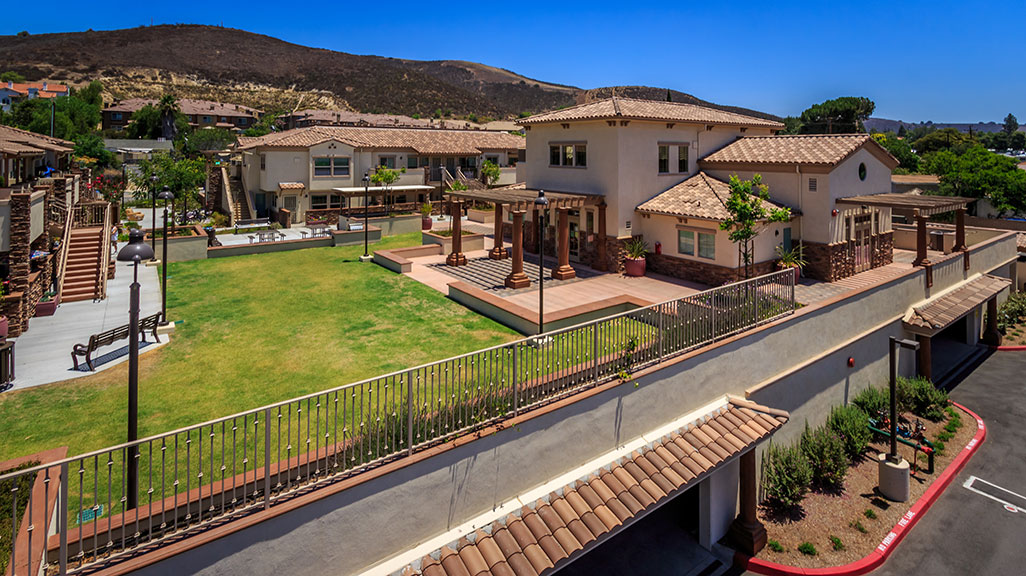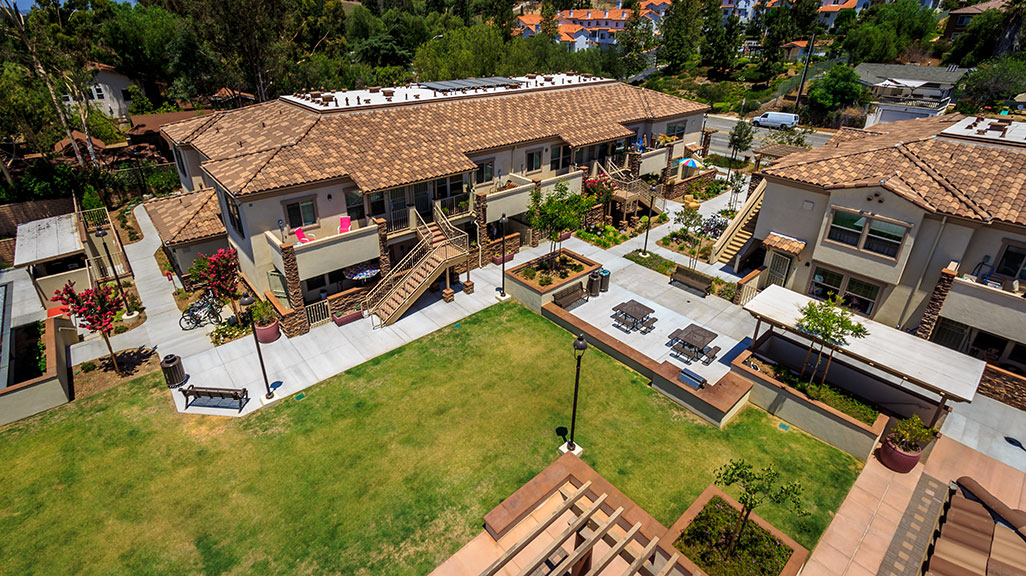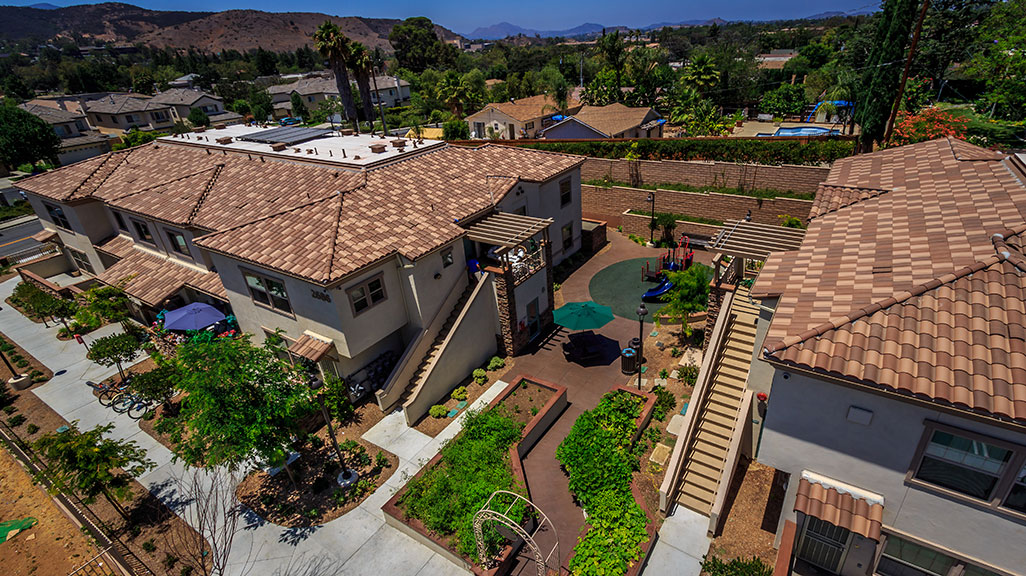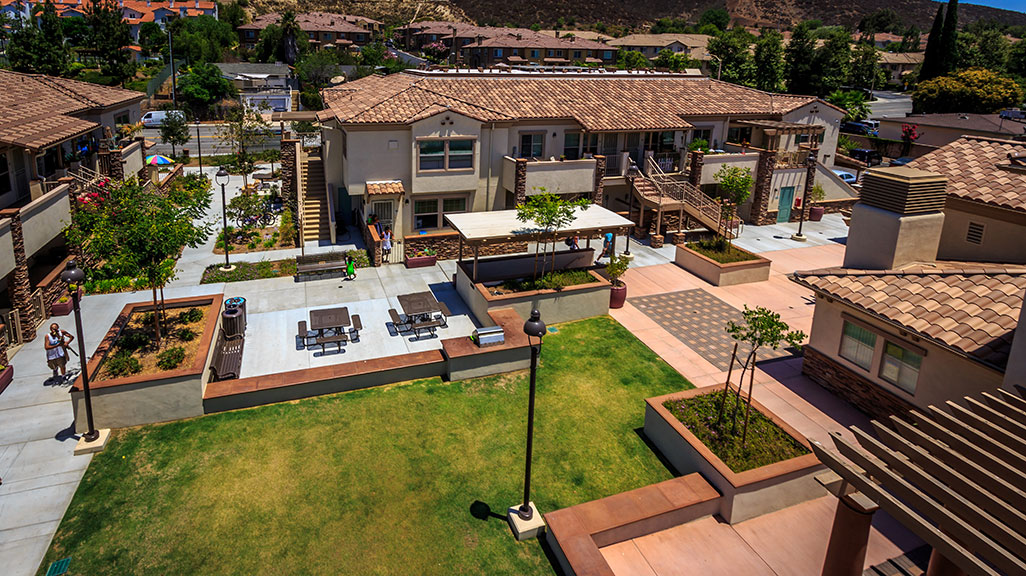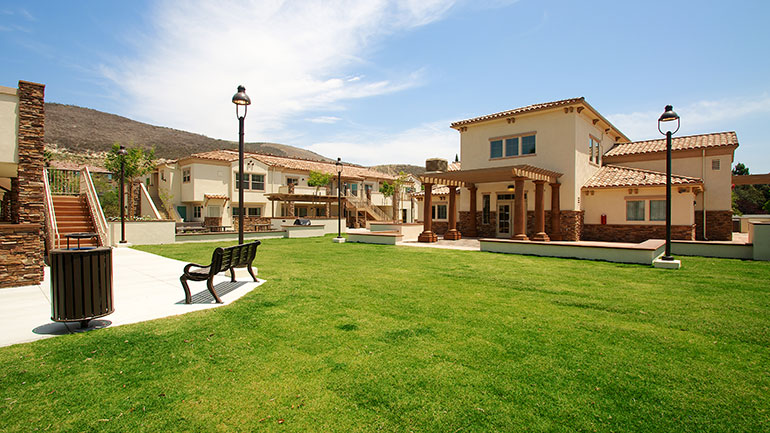
Article originally appeared on the Ventura County Star – written by Robyn Flans, Special to Ventura County Star
To Inez Welch, Many Mansions saved her life about 13 years ago when she was homeless, living in her vehicle after a bad car accident.
The organization that provides affordable housing accepted her into Richmond Terrace in Thousand Oaks.
That’s why she came to the 40th anniversary celebration of the nonprofit organization held Saturday on the grounds of the Civic Arts Plaza in Thousand Oaks.
Welch is grateful. She lives alone but said it feels like a community.
“I like our group meetings on Tuesdays,” Welch said. “I love the parties we have every summer and I love how we interact with one another and get along.”
Welch is one of about 1,200 adults and 300 children Many Mansions has come to serve in the past 40 years as it has expanded to own and manage over 548 units of affordable housing.
It all began in 1979, when Frank Schillo and Lois Jackson Kurtz from St. Paschal Baylon Catholic Church in Thousand Oaks organized a meeting of 25 concerned citizens to address rising rents in the community.
Many Mansions, a name they chose from the Bible, originally provided rent assistance through an adopt-a-family program for donors, but with no control over rent hikes or housing conditions, the organization in 1986 decided to embark upon its first development project. Along with the city of Thousand Oaks and the Conejo Future Foundation, they developed Schillo Gardens for low-income families.
Stories like Welch’s are what have kept Rick Schroeder involved with Many Mansions since 1996, first on the board of directors and as executive director since 2002.
Schroeder feels their greatest achievement in the last 20 years has been changing people’s attitudes towards affordable housing.
“With people in the community and businesses 20 years ago, there was a hostility toward low-income housing,” Schroeder said. “Their perception was it was a bunch of homeless people, a lot of crime, a lot of gangs. But over the years we’ve changed that because we’ve built so many really nice properties.”
The community at large has also realized the need, Schroeder said.
Ashley Huizenga has lived at Hillcrest Villas for six years with her husband and five children, ages 10 months to 16.
“Many Mansions is a blessing because many of us can’t afford to live in California,” Huizenga said. “With our income we could have a home in any other state, but here we cannot. I stay home with the kids while they’re young and then I work and my husband works.”
Huizenga said Many Mansions also helped her get scholarships for college and she obtained her preschool teaching degree while a resident at the property.
Geno Diacono has been sober 23 years. He was living in his van before he connected with Many Mansions. Now he lives at Hillcrest Villas with his Chihuahua, Mea.
“They make everything affordable for us,” Diacono said. “There’s a lot of donations we can get our hands on and they have a lot of good classes in the afternoon.”
The development of Hillcrest Villas is Schroeder’s personal highlight because the project took over six years to complete.
“The population is half affordable and half formerly homeless, so that was a challenge, and yet it’s probably one of the most beautiful apartment buildings you’ll ever see,” Schroeder said. “It was really a difficult development, but one I’m probably the proudest of.”
The demand for affordable housing, however, far outstrips what’s available in Ventura County. Earlier this year, Many Mansions closed its general waiting list after the anticipated wait time grew to more than 10 years.
Schroeder told The Star in March that Many Mansions would reopen its waiting list when the number of households on the list drops below 2,000, which he estimated could take three to five years.
Schroeder anticipates the organization’s growth to double within the next three to five years. He said Ventura County will always be their base, although they have begun work in Los Angeles County.
“As a leader in supportive housing, we want to develop more types of affordable housing — senior housing, more family housing,” Schroeder said. “We hope to expand our list of partners, be it joint venture development partners, service providers, financial, etc.
“Affordable housing is a large and difficult area and we need as many partners as possible to be successful. Collectively we all sense there’s a problem here and we all need to do our part.”

